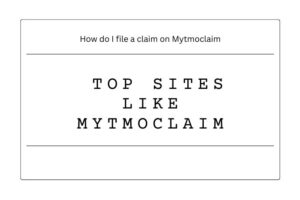The e-commerce industry is thriving stronger than ever. Recent data from the US Department of Commerce shows that e-commerce sales in the country grew by 14.9% from 2018 to 2019, and reached a whopping total value of $595.5 billion dollars!
Furthermore, with the technology available to us—internet, smartphones, and laptops—there’s no reason for US merchants to limit themselves to local transactions anymore. Indeed, more and more businesses are opting to ship their products globally.
Are you looking to grab even a meager portion of the $600-billion global e-commerce market? Assuming you already have a running business and are considering expanding your target market on a global scale, one of the first things you need to secure is an offshore merchant account.
There are plenty of options on the market. Entrepreneurs are free to choose from dozens of different providers that accept even high-risk and bad credit businesses.
Now, to ensure you make educated, fact-based, and grounded decisions, we encourage exploring the different offshore merchant accounts available. Do extensive research as to what the top providers on the market have to offer. See which brand best fits your business needs.

Table of Contents
What Is an Offshore Merchant Account?
An offshore merchant account is an international account located in countries outside one’s country of residence.
Some of the business owners who may need one include:
E-Commerce Stores
Businesses that cater to a global market will need an offshore merchant account to accept overseas payments and transactions. Note that different countries may have varying payment processing requirements.
First, the payments will be processed by a banking institution located outside the merchant’s country of residence. Afterward, the funds are transferred to your offshore account.
Once the processed payments are credited to your account, only then can you transfer them to a local business bank account of your choice.
High-Risk Businesses
Most traditional merchant account providers do not accept applications from businesses that operate in high-risk industries. Commercial providers generally avoid businesses at risk of fraudulent transactions.
If you’re considered a high-risk business and are having trouble getting approved for a merchant account, you can opt for an international account instead.
Many offshore merchant account service providers are willing to work with high-risk businesses. In fact, some providers specialize in certain trades and industries already.
High-Volume Businesses
Commercial banks consider businesses with regular high-volume transactions as risky, even if they do not come from a high-risk industry. The higher the volume of transactions, the higher the risk of getting fraudulent chargebacks and transactions.
Like businesses that come from high-risk industries, these business owners can opt to open an international account instead. Look for options that have fair processing rates, so you don’t end up losing profits.
Best Offshore Merchant Account Service Providers
1. SMB Global
SMB Global caters to a wide range of clients coming from various industries. Even among offshore merchant account service providers, they are known to be one of the most lenient and accommodating brands when it comes to working with high-risk businesses.
Plus, they charge reasonable, competitively priced fees. Some might even go as far as to say that their contract terms rival what commercial institutions offer low-risk businesses.
SMB Global’s main requirement to get approved for an account is for businesses to have a monthly processing volume of no less than $50,000. The only exception to this rule is if the client has proof of strong financial history.
2. Host Merchant Services
Host Merchant Services initially catered solely to low-risk businesses. They’ve only expanded to accepting high-risk clients lately, so the industries they choose to work with might still be limited.
What sets them apart from other high-risk merchant account providers is their vast array of products and services offered.
They carry some of the best merchant tools for e-commerce store owners and retailers. And the best part is that all these products are available to both high and low-risk businesses.
They have a reliable 24/7 customer support service team that’s ready to address all client queries and concerns. This is very useful since they specialize in providing software programs and point of sale (POS) systems.
The main requirements to qualify for an account aren’t disclosed on their website. However, considering they are a tech company specializing in e-commerce technology, those who have their own successful, high-volume online stores might have a better shot at getting approved.
3. Durango Merchant Services
Durango Merchant Services is a reputable, established merchant account provider that dates back to 1999. They’ve been known to cater to various high-risk merchants for decades now.
Of course, the team cannot approve all of the applications that come their way. However, records show that they’ll do their best to find a suitable payment processor and bank for the greater majority of their clients.
Unlike other bad credit merchant account providers, they won’t force their clients to sign up for overpriced equipment leases. Instead, they’ll offer them the chance to purchase the payment processing systems and programs they need at a competitive price right off the bat.
4. Easy Pay Direct
Easy Pay Direct is one of the best options for high-risk merchants who just cannot seem to get approved for any type of offshore account.
Similar to SMB Global, they cater to a wide array of clients from various industries. Some users might even say that Easy Pay Direct is a bit more lenient with requirements.
Perhaps the only tradeoff is that they charge higher processing and setup fees as compared to other providers. However, they do not have equipment leases or early termination fees. If a business owner decides to switch to another provider with lower rates, they won’t have to pay for anything.
Finding the Correct Offshore Merchant Account Service Provider
Newbie entrepreneurs exploring merchant account services for the first time may notice that applying for an offshore account is harder than a local one.
This is primarily because most businesses accepting overseas payments come from high-risk industries involved with jewelry, digital marketing, forex trading, health and wellness supplements, vape/e-cigarettes, and high-ticket coaching others.
Note that financial institutions often reject applications from these types of businesses.
However, this is not to say that high-risk businesses cannot secure an offshore account. You’ll just have to go beyond commercial institutions.
There are plenty of merchant account providers that cater to high-risk industries, you don’t have to limit yourself to just one or two options.
But bear in mind that some of these brands tend to prey on unknowing, first-time entrepreneurs desperate to get their offshore merchant account. To ensure you’re dealing with a legitimate provider, check their:
Industry Specialization
Oftentimes, high-risk merchant account providers limit their clients to specific high-risk industries. For example, a provider may work with businesses that distribute tobacco, CBD oil, and vape products but reject brands from the adult film industry and vice versa.
Ideally, businesses should look for providers that specialize in clients from their specific industry. Not only does this increase one’s chances of approval, but it’s also reassuring to work with an experienced, reputable provider.
Currency Conversion Services
Don’t be too quick to let your local bank handle the conversion of your money to US dollars.
Consult with a banking officer to see what their conversion fees are then compare them with what your preferred merchant account provider and other third-party conversion systems offer.
Setup, Application, and Processing Fees
Some of the fees your merchant account provider might charge you:
- Setup Fees. These fees will be used to set up your offshore account, along with any software program, payment gateway, or POS system you’ll need to have access to.
- Application Fees. You might want to reconsider your decision if your provider is asking for an application fee—unless they are a well-known, reputable brand. Applicants shouldn’t have to pay for anything because account approval is not guaranteed.
- Processing Fees. These are the fees your provider charges per transaction for processing payments made via credit card. Both local and overseas transactions have processing fees.
- Cancellation Fees. Avoid merchant account providers that charge unreasonably high cancellation fees. Sketchy brands intentionally spike these fees to force clients to stay despite unsatisfactory service.
- Cross-Border Fees. These are the fees charged per transaction when you accept payments made from another country or in a different currency. Different providers charge varying fees. If you will be processing overseas payments often, we suggest going with a provider that has low, affordable rates.
Contract Terms and Agreement
Before signing anything, make sure to read the contract at least two to three times. Check all the clauses to see if there are any terms and conditions that may seem unfair or unfavorable.
Awards, Ratings, and Certifications
It’s best to stick with reputable providers backed by years’ worth of experience, thousands of paying clients, and multiple awards.
Also, try looking for real-life reviews from actual users. You can scour forums, blog sites, and social media pages for comments from various business owners.
Additional Resources
Latest US e-commerce sales reports
The US Department of Commerce routinely posts quarterly updates on the US e-commerce market activity. You can download the latest reports from the official website of the United States Census Bureau.
Where do you plan on getting an offshore merchant account? Share your thoughts with us in the comments section below!




